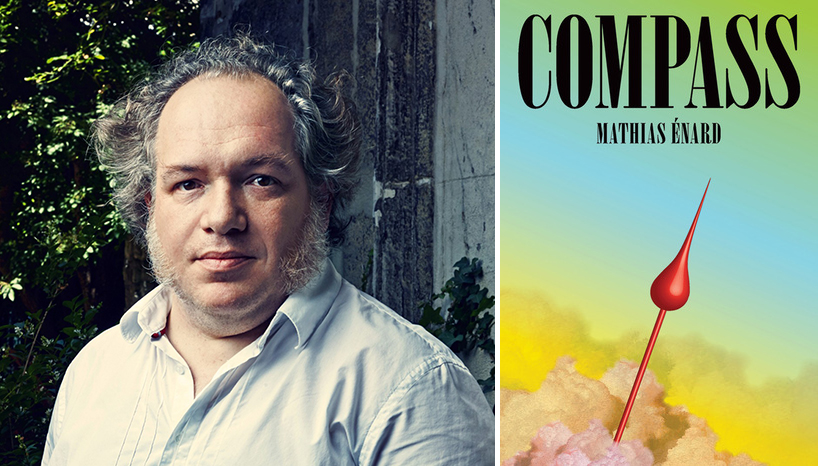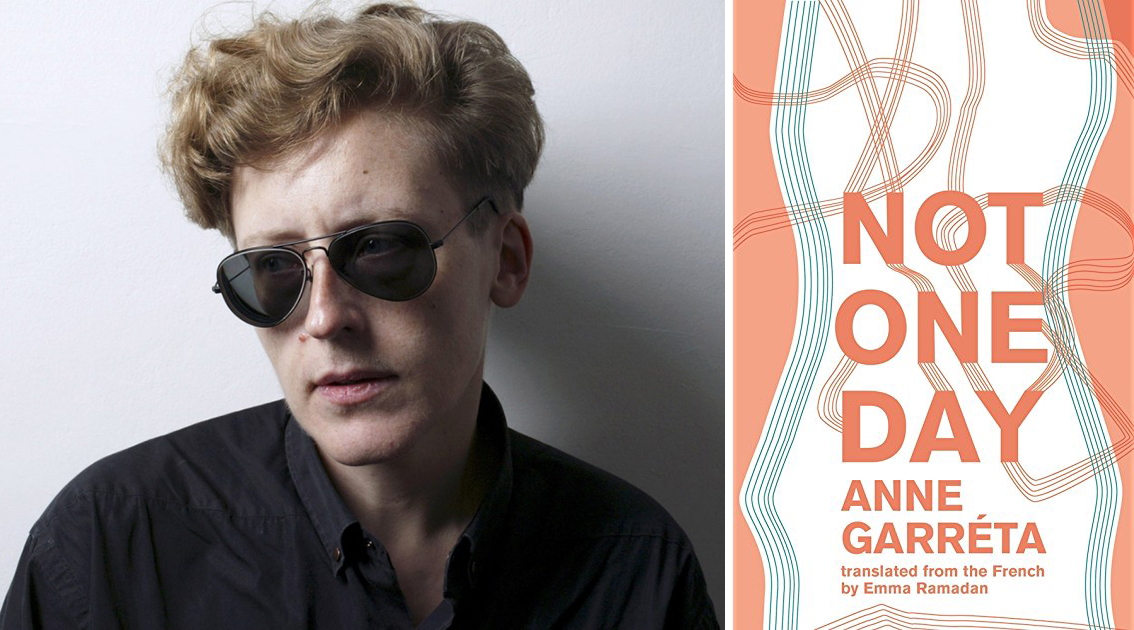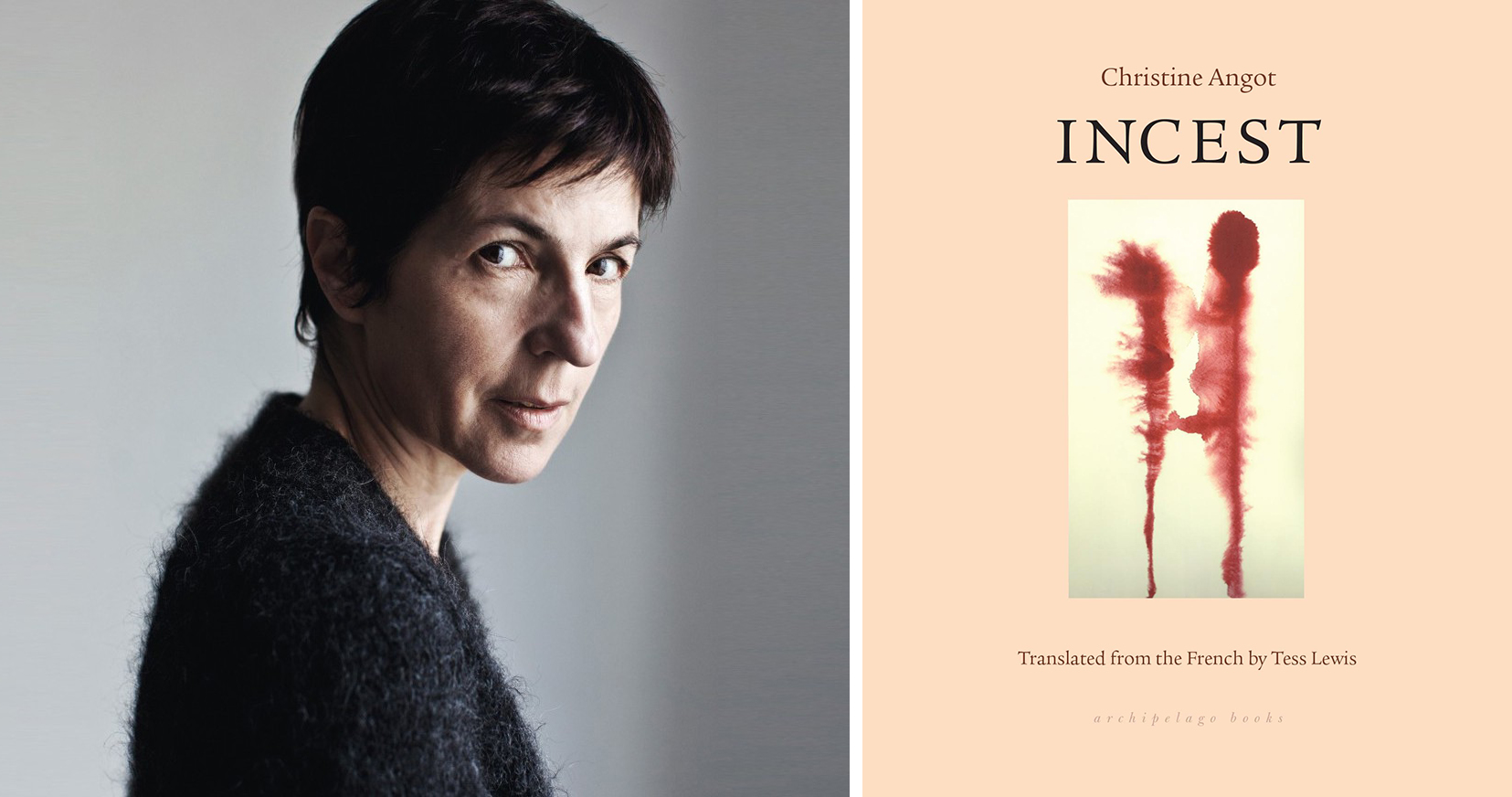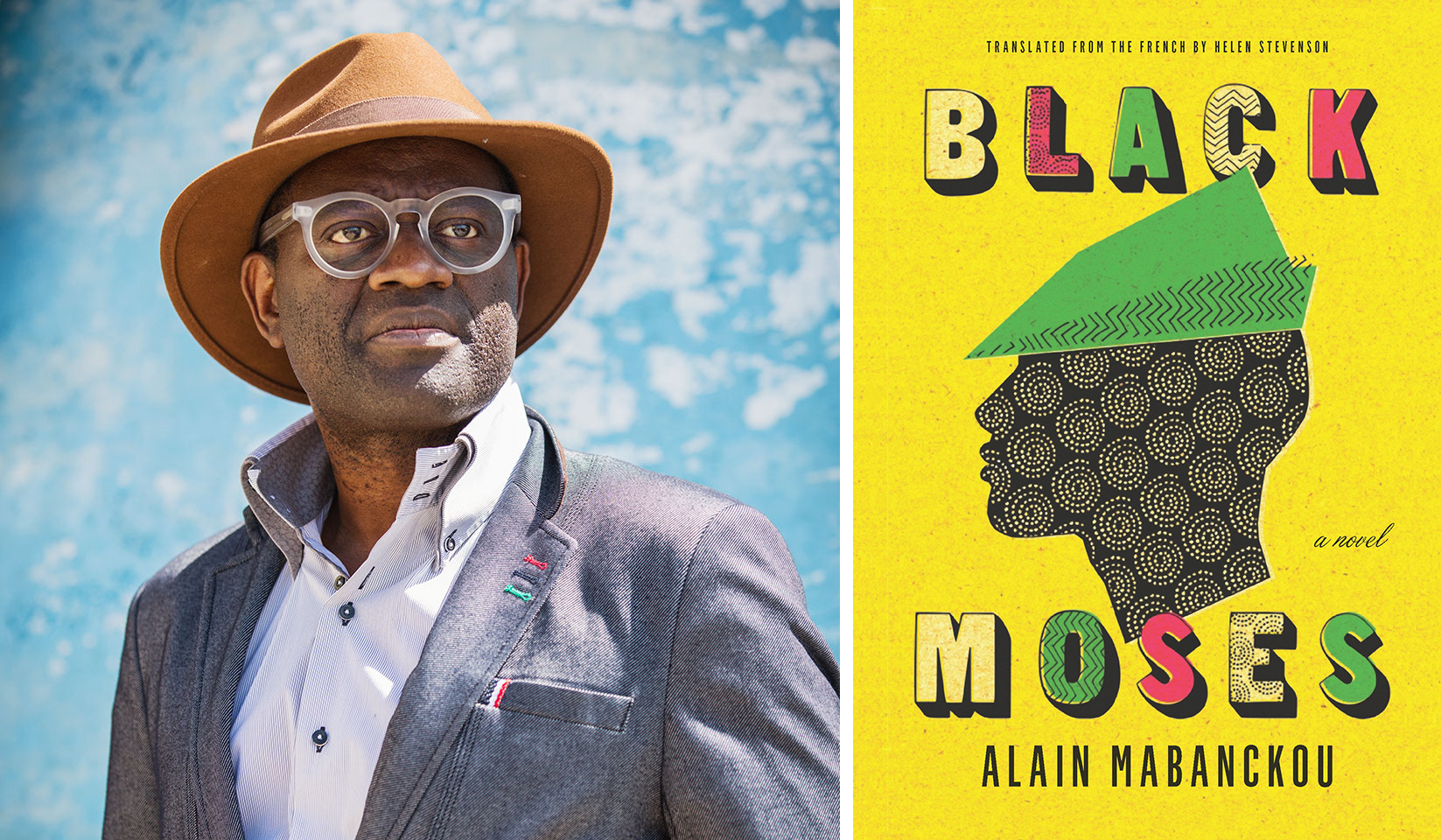
Meet the Shortlisted Authors for the 2018 Albertine Prize
5 French-Language Writers You Should Know
The Albertine Prize, now in its second year, celebrates the best in French-language literature translated into English and published in the last year. But it’s no ordinary prize—the shortlisted books were selected by co-chairs Lydia Davis and Francois Busnel, along with the Albertine staff, but the winner will be decided by public online vote. The winning author and translator will receive a $10,000 honorarium, co-presented by the Cultural Services of the French Embassy and Van Cleef & Arpels.
You can vote for your favorite of the shortlisted novels here through May 1. If you haven’t yet made up your mind (or even if you have), on April 12, Albertine Books will hold a public Book Battle hosted by Lit Hub’s own Jonny Diamond, in which five great literary minds—including Garth Risk Hallberg and Maaza Mengiste—will defend their favorites. The winning author and translator will be honored at a ceremony on June 6th, which will also be open to the public.
In preparation for the festivities, and to help you get to know them a bit better, Lit Hub asked each shortlisted author a few questions. Meet all five below.
 Mathias Énard, author of Compass (tr. Charlotte Mandell)
Mathias Énard, author of Compass (tr. Charlotte Mandell)
Who do you most wish would read your book?
Everyone! The whole planet! I understand it won’t always be possible, though. Actually during the process of writing I don’t think much about the readers—alone at my desk I write for nobody. Nonetheless (and probably the whole history of writing stands between these two abstract and yet very concrete concepts, nobody and everyone) I wish the immense majority of those who are able to read take a look at my books . . . More modestly, I wish my daughter would read them someday. She has shown a firm disinterest in my books so far! How can you expect that the whole planet reads your novels if your own family doesn’t?
What’s the best book you read this year?
Probably Letters to Lucilius by Seneca the Younger. These letters are incredible. According to Seneca only one thing is certain, hence important: death is everywhere around us. We have to admit it and learn how to die with courage. But these letters are not only great for their philosophical content, but also for their fascinating descriptions of Roman day-to-day life.
What do you always want to talk about in interviews but never get to?
Food. Recipes. Codfish, for instance. Portuguese codfish recipes. Nobody ever asked me about that, and it’s a pity, because there’s a lot to say. In my novels I try to be very accurate about food, about what my characters eat and drink. Someday I’d love to write a cooking book, about the dishes and recipes that appear in my favorite books. Balzac and Proust, for instance, talk a lot about food. Many French authors are interested in gastronomy and wine. Since the Renaissance! To write a good literary non-fiction book about food and wine in literature would be a dream.
What time of day do you write (and why)?
I usually write early in the morning, between let’s say 6AM and 10AM. Afterwards I do research or proofread what I have written the day before. I guess I’m more creative mornings, full of fresh energy. I never write nights. I read in an epistle of the Arab genius Jahez that writing at night means writing with the Devil. I should try it someday . . .
How do you tackle writer’s block?
Faulkner used to drink himself blind; some take drugs, some go walking, some stare at the ceiling for hours . . . I don’t. I take a nap. I have a couch in front of my desk; so I lie down for fifteen minutes and usually when I wake up I have a new idea. And if it doesn’t work I go back to sleep for fifteen minutes more, and so on. I remember once I had to sleep almost two whole days in a row, but I ended up with a good idea.
Which book(s) do you return to again and again?
Proust’s In Search of Lost Time and Malcolm Lowry’s Under the Volcano. Probably because I always get the feeling, when I’m through reading them, that there’s something I missed… Something I don’t really understand. Powerful books blind you, in a way. They are like very strong lights, like the sun itself: impossible to look at without blinking.
Which non-literary piece of culture—film, tv show, painting, song—could you not imagine your life without?
Barcelona’s Soccer Team, I guess. Barça!!! That’s a piece of culture!!! (With shows, tragedies, and songs). It’s a series that starts every year, a show that has been on for a 100 years for now. It organizes the social life of Barcelona. . . The people are happy when Barça wins, and depressed when they lose. A normal Wednesday morning can be awfully depressive if Barça has lost in the Champions League the night before. Or on the other hand extremely joyful if Real Madrid was soundly beaten. Soccer is a wonderful allegory of destiny.
What was the experience working with your translator?
Working with Charlotte Mandell is just a marvelous experience. She has translated four of my books by now, so we are beginning to know each other well. . . We talk almost every day. I miss it when we don’t. I know from American readers that her translations are amazing. So I consider myself very lucky to have found not only a wonderful friend, but also a magnificent translator.
What’s the best writing advice you’ve ever received?
I think it’s Samuel Beckett’s quote: “Fail. Fail again. Fail better.” I love the idea that no matter how successful it might get, a book is always a failure. That there’s always a distance between the image, the dream you have in your head and the final text. That every attempt makes you a little better. For me writing is about perseverance, will and stamina.
 Anne Garréta, author of Not One Day (tr. Emma Ramadan)
Anne Garréta, author of Not One Day (tr. Emma Ramadan)
Who do you most wish would read your book?
No one alive. No one I know.
What’s the best book you read this year?
Just as there is no such thing as writing, only rewriting (however many times it takes) there is no such thing as reading, only rereading. To figure out the value of a book, you would need to verify that:
a) it has left a memory;
b) it holds up to the memory.
Both Un Coeur simple and The Left-Hand of Darkness do, for example.
What do you always want to talk about in interviews but never get to?
Music. Or sentences. What makes them tick, what gives them bounce, charm, muscle, buoyancy or poignancy. How they can be made to move you. Like music.
What time of day do you write (and why)?
I am permanently jetlagged. Have always been. Time of day is not much use to me. Time of night, a little more. It depends when my last transatlantic flight landed.
How do you tackle writer’s block?
I don’t. I am an unproductive writer. Very serious, but unprofessional. Deadlines, schedules, obligations appall me. I have done my damnedest to avoid turning my literary bent into a job. Writing is exhilarating. Being a writer is a pain. I have writer’s block each time I open my email.
Which book(s) do you return to again and again?
For French prose, Flaubert, Madame de Lafayette. I am old fashioned.
Which non-literary piece of culture—film, tv show, painting, song—could you not imagine your life without?
I would not entrust my life to a single piece of culture, or to a single piece of anything. That would be bad engineering, a recipe for disaster. I had a friend who believed one movie had saved her life. It ended up killing her. Life requires redundancy, variety, multiplicity. Ask for the whole enchilada, always. . .
What was the experience working with your translator?
I was so worried I was making her suffer.
What’s the best writing advice you’ve ever received?
Be careful when mixing metaphors. Eat your vegetables. Don’t express yourself (you’re not a lemon.) Mind your grammar. Have another coffee. Don’t be a bore. You should be dancing.
 Photo by Arnaud Delrue
Photo by Arnaud Delrue
Édouard Louis, author of The End of Eddy (tr. Michael Lucey)
Who do you most wish would read your book?
The people who won’t read it, the people we never think about when we talk about “readers,” the people who hate literature because they feel rejected by it, because they think literature doesn’t care about them.
What’s the best book you read this year?
Night Sky With Exit Wounds, by Ocean Vuong.
What do you always want to talk about in interviews but never get to?
I always try to say what I have to say, no matter the questions. That’s for me the role of a writer, it’s a matter of freedom, to create your own questions, and to not be imprisoned by other people’s questions. You know, when I started to write books in France, the issues that most French writers were dealing with were the life of the white middle class, the desperation of the white middle class, how bored they felt, the nostalgia for the 70’s and the 80’s, the world of business and companies, etc. I didn’t want to give different answers to these issues, but I wanted to focus on other issues, other questions: poverty, sexuality, homophobia, queerness, school system, how can we articulate these topics in a new way. That works the same with interviews.
The thing is to say what you have to say, and to do it in a very subtle way so that the interviewer ends up by believing that you actually answered her or his questions. The answers have to create the questions.
What time of day do you write (and why)?
I start writing at noon because I can’t wake up before 11am. I hate mornings, they make me sad. I usually write till 5pm or 6pm.
How do you tackle writer’s block?
I panic, I complain, I read, I walk, I drink wine, I panic again, and eventually it disappears.
Which book(s) do you return to again and again?
Light in August by William Faulkner; Jazz by Toni Morrison; The Appointment by Herta Muller; A Sorrow Beyond Dreams by Peter Handke; Distinction by Pierre Bourdieu; Don’t Let Me Be Lonely by Claudia Rankine; Night Sky With Exit Wounds by Ocean Vuong; War: A Memoir by Marguerite Duras; Specters of Marx by Jacques Derrida; The Face by Tash Aw; Conversation in the Mountain by Paul Celan (I don’t know if it exists as a book in English); Returning to Reims by Didier Eribon. Etc.
Which non-literary piece of culture—film, tv show, painting, song—could you not imagine your life without?
Old Boy, by Park Chan Wook and Gerry by Gus Van Sant. And, of course, Titanic by James Cameron. (Sorry, I couldn’t pick only one ).
What was the experience working with your translator?
It was a wonderful experience. Michael Lucey understood things I didn’t understand in my own book.
What’s the best writing advice you’ve ever received?
“In place of talking about the book you are going to write, write it!”
 Photo by Jean-Luc Bertini
Photo by Jean-Luc Bertini
Christine Angot, author of Incest (tr. Tess Lewis)
Who do you most wish would read your book?
Anyone who wishes to. A novel is a link between a writer and someone you don’t know. This relation is the basis of any form of art. You have to believe in this. If you don’t, you can’t write.
What’s the best book you read this year?
Vingt-quatre heures de la vie d’une femme, by S. Zweig and La Vie princière, by Marc Pautrel.
What do you always want to talk about in interviews but never get to?
The interviewer can raise any question he likes, I will answer my way. And necessarily arrive where I need to.
What time of day do you write (and why)?
I begin early in the morning, and I go on until I can’t anymore, usually by midday or one. Why? Biological rhythm I suppose.
How do you tackle writer’s block?
This is a personal question. These kind of notes have to remain secret for me. I never talk about what precedes the first page of what will appear as “the novel.”
Which book(s) do you return to again and again?
La Princesse de Clèves, by Madame de La Fayette, Mrs. Dalloway, by Virginia Woolf, The Great Gatsby, by F. Scott Fitzgerald. And new books, those written year after year facing the same world, the same reality.
Which non-literary piece of culture—film, tv show, painting, song—could you not imagine your life without?
Absolutely necessary to me are: Words. Without them, I really could not live. Some films: Shoah, Claude Lanzmann; La Règle du Jeu, Jean Renoir; Le Plaisir, Max Ophuls. Song: “Dans mon île,” by Henri Salvador. Paintings: Women by Auguste Renoir. Women by Gauguin. Old Shoes by Van Gogh. Les Hasards heureux de l’escarpolette, by Fragonard.
What was the experience working with your translator?
I wish I could have had one. But the distance prevented that. Once, I would like very much to organize a public meeting (with a student audience or ordinary readers), and discuss with the translator the questions she would like to solve.
What’s the best writing advice you’ve ever received?
“Continue.”
 Photo by Shevaun Williams
Photo by Shevaun Williams
Alain Mabanckou, author of Black Moses (tr. Helen Stevenson)
Who do you most wish would read your book?
I wish that those who would like to know what an African childhood is like would read my book. I also wish that those who want to know how Africa was in the 1970’s during the communist regimes which have led to the dictatorships that characterize certain African countries today, would read my book.
What’s the best book you read this year?
The best book that I have read this year is The Golden House by Salman Rushdie.
What do you always want to talk about in interviews but never get to?
Something that I always want to talk about in interviews but never get to speak about is difficult to pinpoint because I have always been outspoken about the topics that I wish to voice.
What time of day do you write (and why)?
I write at all times of the day. I do not have a fixed schedule. When I am hungry, I eat. Sometimes I eat a lot, sometimes I eat a little, but I have to eat in order to live—just as I have to write in order to live.
How do you tackle writer’s block?
I tackle writer’s block by reading what I have already written the day before until things come to me.
Which book(s) do you return to again and again?
The book that I return to again and again is The Old Man and the Sea by Ernest Hemingway.
Which non-literary piece of culture—film, tv show, painting, song—could you not imagine your life without?
The non-literary piece of culture that I would not imagine myself without is the music of Fela Kuti.
What was the experience working with your translator?
Working with my translator, I give her all the freedom that she wants and needs, because a translator is not only a translator, but also a writer. I have a good experience with my translator, Helen Stevenson. She knows how to find my voice.
What’s the best writing advice you’ve ever received?
The best writing advice I’ve ever received is: do not begin a story by describing the weather.
Emily Temple
Emily Temple is the managing editor at Lit Hub. Her first novel, The Lightness, was published by William Morrow/HarperCollins in June 2020. You can buy it here.



















